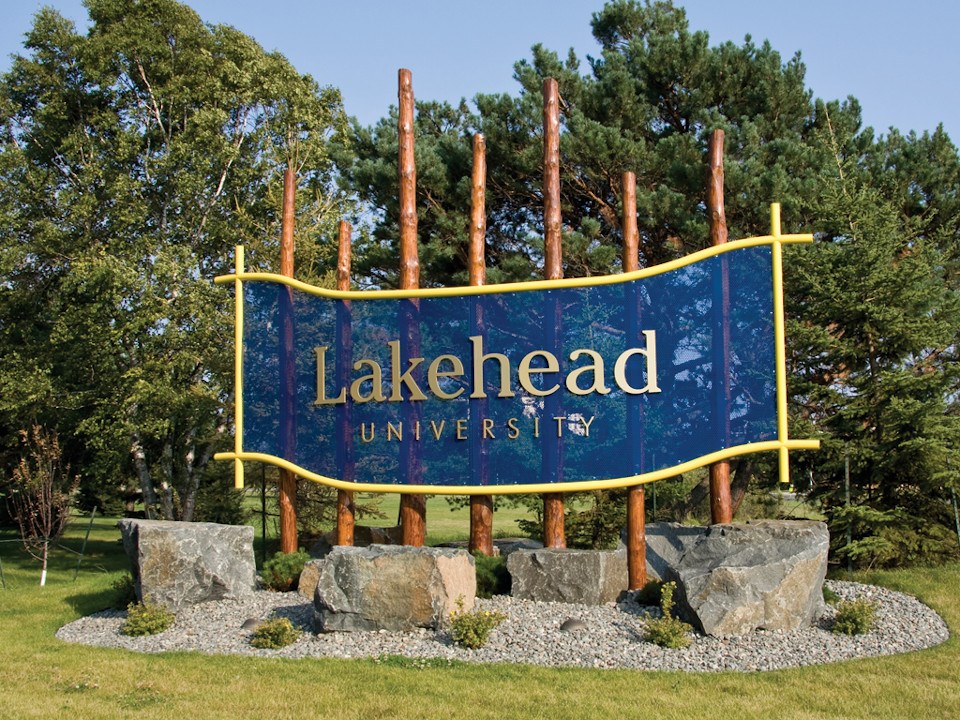NEWS RELEASE
LAKEHEAD UNIVERSITY
**************************
In August, students from Lakehead University travelled to California to participate in the Indigenous Student Seminar hosted by Stanford University’s Hoover Institution.
Tyna Legault Taylor, a member of Attawapiskat First Nation who is a master’s student in Social Justice Studies, participated in the four-day immersion program exploring federal policy, tribal governance, and Indigenous entrepreneurship.
“Some of my key takeaways involved having a deeper appreciation for the rich history of entrepreneurship and trade that took place among Indigenous peoples prior to European contact,” Taylor said.
“And how despite ongoing settler colonialism we continue to develop better tools towards self-determination.”
The goal of the annual seminar is to help Indigenous students and recent graduates think critically about the interface between federal policy and self-determination.
Taylor learned what makes Indigenous businesses unique versus other businesses, and what factors Indigenous business owners and managers have to deal with that may not be present in other businesses.
The seminar featured approximately 16 speakers who discussed topics ranging from renewing Indigenous economies, property law, Indigeneity, fiscal power for First Nations, addressing the stereotypes that undermine Indigenous sovereignty, and more.
To help students attend the conference, Lakehead University covered the cost of airfare and the hotel costs for the travel day. Stanford paid for transportation from the airport and all other expenses while the student was in the program.
Sydney Belleau was enthralled by the conference. She will soon begin her final semester of Lakehead’s Master of Science in Forestry program.
“Although I approached this seminar with a natural resources management/researcher lens, discussions on property law, self-governance, and sustainable economies were perfectly relevant and I appreciated the broader context on how Indigenous communities globally can revitalize their economies and their role as sovereign nations.”
Belleau also learned that if a nation wants to be self-sufficient and sustainable, there must be infrastructure for practicing Indigenous law (i.e. courthouse with a jury box so nations can enforce/practice their law), the inclusion of Indigenous peoples in decision-making on tribal lands, ownership, entrepreneurship, and financial independence from government.
Tashya Orasi described the Indigenous Student Seminar as an amazing opportunity that she was grateful to attend. Orasi is a PhD candidate in Leadership and Policy Studies in the Faculty of Education.
“There was such a diversity of perspectives, topics and many engaging conversations that it would be hard for me to name a favourite one, but I am particularly excited to tuck into one of the books gifted to us: Renewing Indigenous Economies by Terry Anderson and Kathy Ratte.”
Perhaps the most impactful part of the conference for Orasi were the discussions about Indigenous identity, self-governance and resistance to colonial erasure.
“As a reconnecting Métis, it was important for me to be part of these discussions because, as Indigenous people, while our experiences and histories are vastly different, one of my key takeaways from this seminar was that many voices and perspectives coming together can amplify the restoration of Indigenous knowledge, culture and economies.
“These are vital conversations as we work towards decolonization.”
Olivia Adams learned that stereotypes of Indigenous people continue to undermine tribal sovereignty. Adams is heading into third year for the Bachelor of Science in Nursing program.
“To identify the origin of these stereotypes we need to re-evaluate the government documents - look at what is said, who said it, and identify the obvious racism that is still used in today’s government,” Adams said.
“These are the stereotypes that continue to undermine tribal sovereignty today. From the staff and faculty, I learned that you never stop learning. No matter your age or background, there is always a space to grow and learn at Stanford.”
From the peers Adams met from around the world, she learned that each Indigenous community shares similarities yet each is different in its own way.
“I also learned that there are so many brilliant, young Indigenous minds out there that are going to accomplish amazing things. It gives me hope for our future.
“And, as young Indigenous people – we are the future. We need to share our stories, take opportunities, learn from one another and be the change we want to see,” Adams said.
